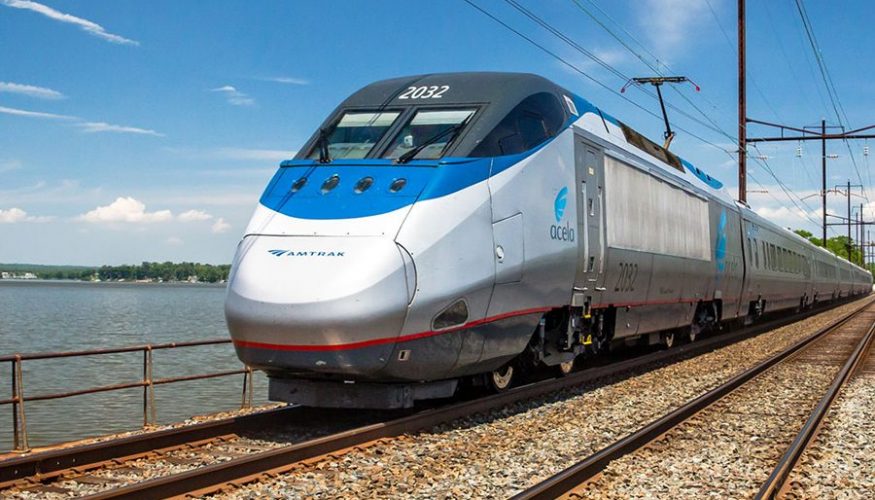HBJ: A Marshall Plan for Infrastructure Can Boost New England’s Economy

As originally appearing in The Hartford Business Journal
The COVID-19 pandemic has impacted not only the physical health of almost 2 million Americans, but also the economic well-being of our region and nation.
Congress has enacted several massive legislative packages to help tackle coronavirus, assist struggling businesses and reinvigorate the economy. Still, more must be done.
One bold step that Congress could take to spur economic growth already has support from Democrats and Republicans on Capitol Hill as well as the White House: a major federal infrastructure investment package, which would provide tremendous benefits to the nation and our region.
As Washington considers such an investment, it is important that our elected officials take a broad view of what constitutes infrastructure. Traditionally, when we talk about infrastructure, the first thing that comes to mind is our transportation infrastructure, which all would agree needs repairs and modernization.
Indeed, House leaders recently crafted a legislative framework that includes such improvements to the traditional components of America’s surface transportation programs.
We all know our region’s roads and bridges are in rough shape. In fact, recent data shows that 8.4% of our bridges are structurally deficient, above the national average of 7.5%. Also, our roadways must be improved to accommodate the increased traffic we’ve seen over the years, not just for carpools and individual drivers but also incentivize bus-rapid-transit.
Besides addressing road needs, years of mass transit maintenance backlogs require a substantial investment. Bolstering transit throughout our region will ensure greater access for commuters, decrease congestion and improve air quality. This holds true for Amtrak, particularly the Northeast Corridor, which must be upgraded.
Moreover, Congress should give serious thought to funding regional rail expansion to better connect our region and spark economic development beyond traditional hub centers. We appreciate that the recent House bill aims to tackle these surface transportation priorities.
Another traditional infrastructure mode is air travel, which will no doubt rebound and even hit new heights, necessitating airport upgrades and new construction to meet increased passenger loads. Similarly, growth in trade will dictate a need for on-shore facility capabilities and channels that can accommodate the vessels bringing goods to and from our ports.
However, as vital as our transportation infrastructure is, it is critical that our leaders in Washington take a broader view of what constitutes physical infrastructure.
If the coronavirus pandemic has demonstrated one thing, it is that hospitals must be considered part of our national infrastructure and funds for the construction and renovation of hospitals are necessary to ensure we can manage future potential health crises in our communities.
Federal investments for physical and technological infrastructure on higher education campuses as well as for elementary and secondary schools will ensure a modern education system that can accommodate all students and prepare them for the jobs of the future.
Water infrastructure systems demand constant attention, whether for drinking water or wastewater treatment facilities. Besides the need to meet new requirements for our growing region, aging systems — some approaching or surpassing a century old — need replacing as well.
Energy reliability is critical to our economy and for our overall way of life, and Washington must pursue modernization investments that will enable the grid to safely and reliably accommodate new clean energy resources that reduce greenhouse gas emissions.
Finally, given New England’s vibrant innovation economy, we must make investments in our “innovation infrastructure.”
Connectivity has proven vital to our economy — especially during this pandemic — and any major infrastructure investment must support and expedite the deployment of broadband that can accommodate telework, telehealth and remote learning needs across the region.
Further, support for America’s research infrastructure is necessary to cement our overall research capabilities and boost our competitiveness for years to come.
Also, whether it’s new construction or necessary upgrades, climate resiliency and cybersecurity protections must be fundamental additions to infrastructure components to guarantee the integrity of our investments.
Congress and the White House have a once-in-a-generation opportunity to enact a bipartisan infrastructure plan that will create jobs, boost the economy and meet existing and anticipated infrastructure needs. Many have dubbed such an effort as a “Marshall Plan for Infrastructure” and that is clearly what the United States can and should accomplish in the wake of this pandemic.